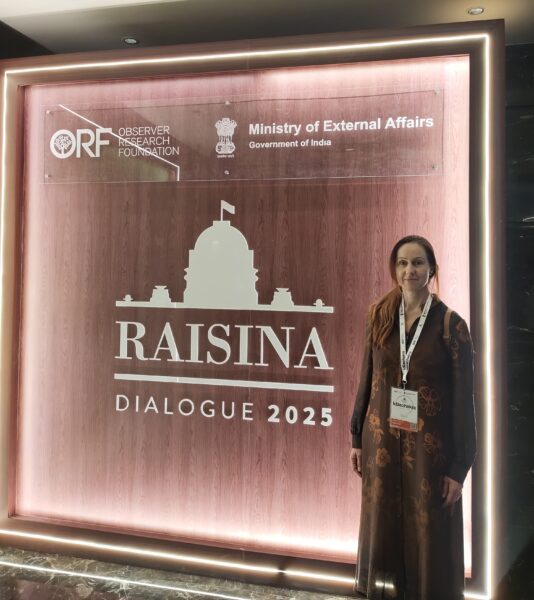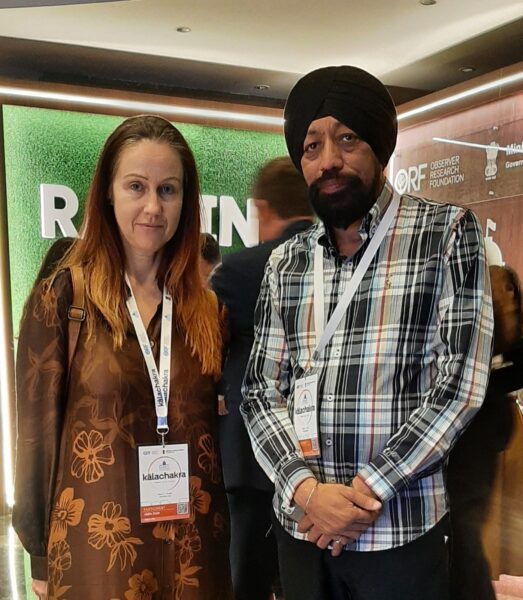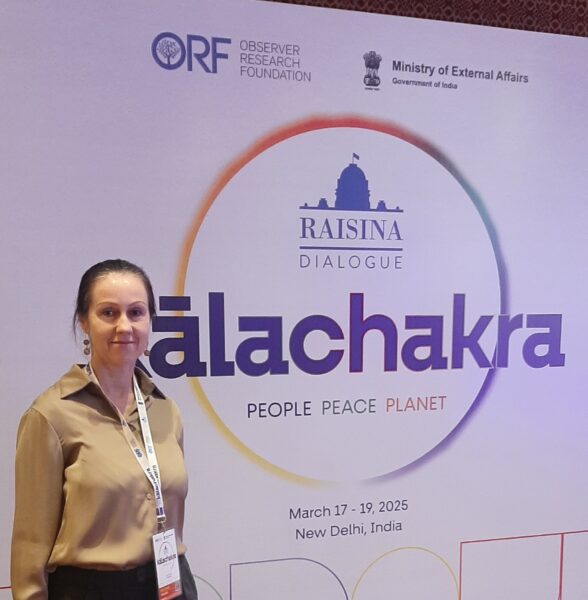
At the high-profile Raisina Dialogue, discussions repeatedly returned to one pressing theme: the unprecedented challenges facing the rules-based global order. Organised by the Delhi-based think tank Observer Research Foundation (ORF) and India’s Ministry of External Affairs, the event has become a critical space for tough conversations and encapsulations of the world affairs by a diversity of decision- and policymakers across the globe, with many smaller countries from Europe, Asia and Africa well represented. The 10th edition of this flagship event, themed Kalachakra – People, Peace, Planet, convened in New Delhi from March 17–19, 2025, drawing high-profile participants from over 125 countries to discuss pressing geopolitical and economic issues.
Among the invited attendees was our very own Karin Dean, senior researcher at Tallinn University and the leader of the Eur-Asian Border Lab. Karin’s month-long research fellowship at ORF, supported by ORF and the Estonian Ministry of Foreign Affairs, is a part of the wider commitment of both India and the EU to fostering partnership during the turbulent times. A full session “When the Centre Holds: India-EU Partnership and Global Stability partnership” was devoted to the future role of the India-EU partnership, where the Secretary General of the Estonian Ministry of Foreign Affairs, Jonatan Vseviov took part in discussions together with Anna Lührmann, Minister of State at the Federal Foreign Office, Germany, and other distinguished speakers.
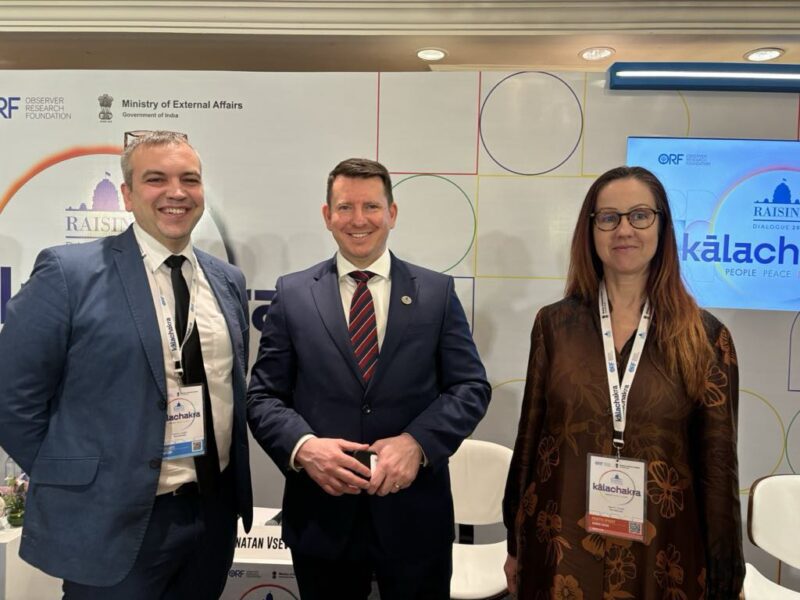
Innar Liiv, Associate Professor at Tallinn University of Technology, Jonatan Vseviov, Secretary General of the Estonian Ministry of Foreign Affairs, and Karin Dean, Senior Researcher at Tallinn University, at the Dialogue
Key themes: Borders, digital sovereignty, and security in the 21st century
Most issues of concern by the policy practitioners across the world went into the heart of border studies, including the Russian aggression in Ukraine, the multiple developments in cyber space, the geopolitical race for space and maritime dominance. This demonstrates how border studies as a discipline is now critical to understanding many of today’s pressing global challenges.
The following were some of the most pertinent topics explored during the Dialogue:
1. The role of borders in the changing world order
Russian aggression in Ukraine has reignited concerns about the fragility of borders protecting the rules-based world order. Worries were voiced about the future respect of the foundational norms of sovereignty and non-interference in practice, the rule of might, and who should protect these.
2. Sovereignty in a digital age
- Cybersecurity and borders: While the internet was originally envisioned as a borderless space, digital fragmentation is now apparent, with firewalls, data sovereignty laws, and cyber conflicts shaping the geopolitical landscape.
- The weaponisation of digital infrastructure: The discussions highlighted how virtual space is no longer an abstract concept. Nations or private companies are increasingly controlling the flow of information, weaponising data, and leveraging technology for various ends.
3. The evolving security entanglement of maritime, aerial and territorial borders
- Maritime security is now intertwined with air, territorial, and cyber security, raising the question as to where sovereignty ends when nations extend their influence into airspace, cyberspace, and even outer space?
- Space as the new frontier: With increasing global reliance on satellite technology, concerns about security, governance, and access to outer space resources become crucial. As one panelist put it, “What happens to space where there are no boundaries, but geopolitical competition is growing?”
4. The Global South’s perspective on borders
- Leaders from Africa and Asia pushed for an alternative multilateralism and new, more inclusive mechanisms and alliances.
The importance of dialogue in turbulent times
As Sunjoy Joshi, Chairman of ORF, aptly noted in his closing remarks, conversations like those at Raisina are crucial in an era when some discussions are no longer possible in certain parts of the world. “The concept of Raisina is primarily about the difficult conversations. You can decide by war, but war comes at great cost. Let the battlefield be at these tables.”
As global governance structures shift, the essence of the Eur-Asian Border Lab is further highlighted. The insights shared at Raisina 2025 reaffirm that our work is not only timely but indispensable in unpacking and shaping the future orders. The coming years will demand a greater synthesis between academic scholarship and practical policy-making, and, thankfully, we are already a part of this course and have much more to come.
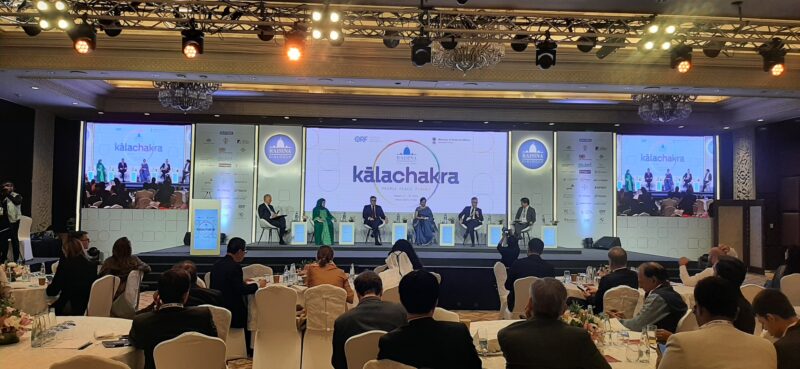 |
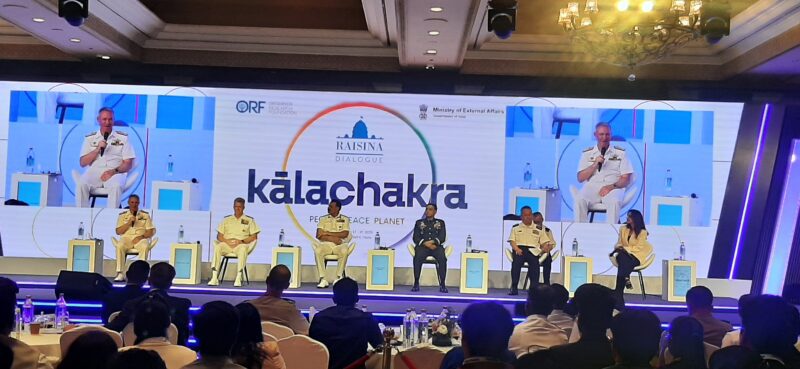 |
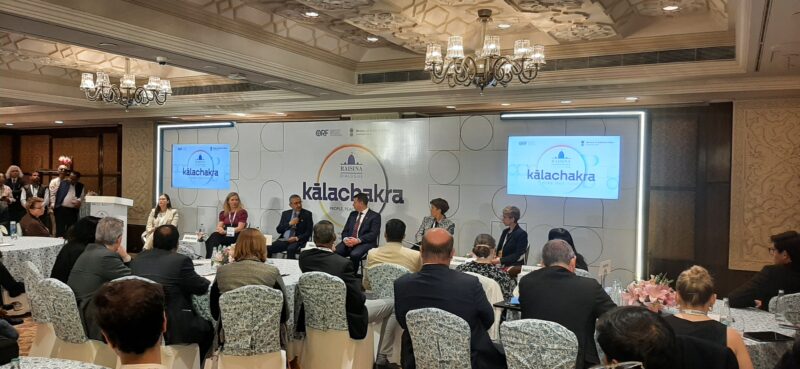 |
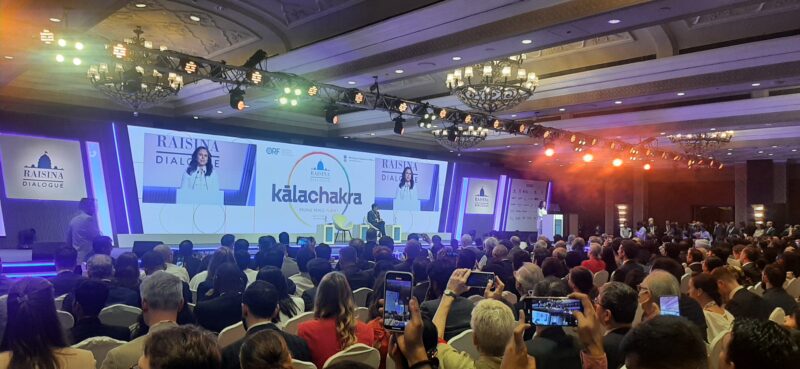 |
